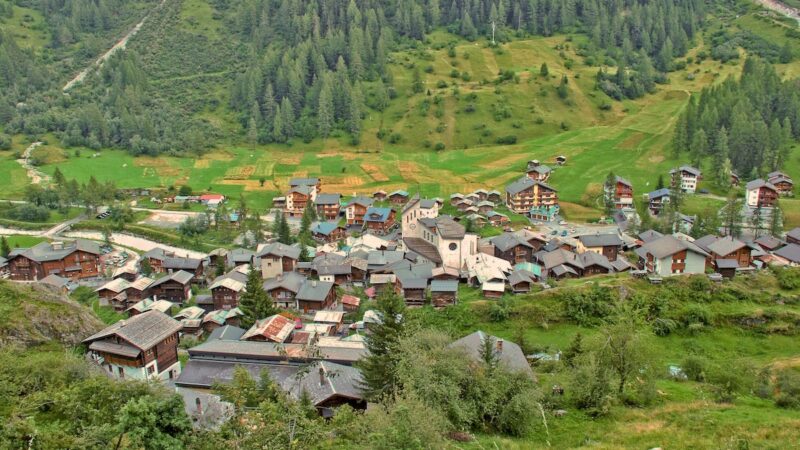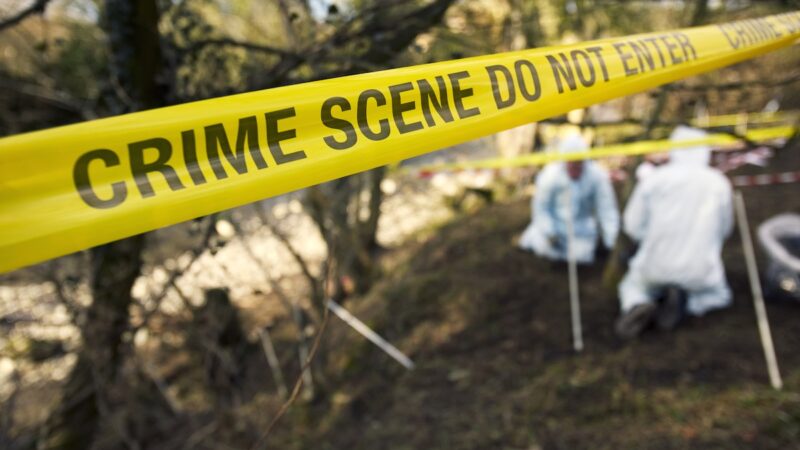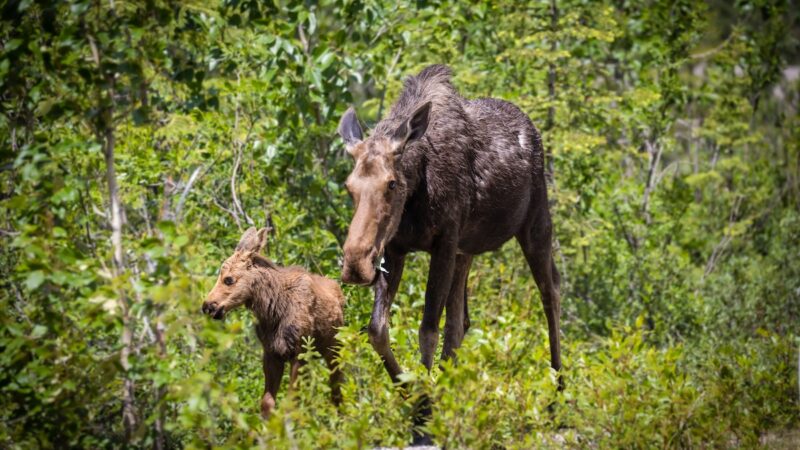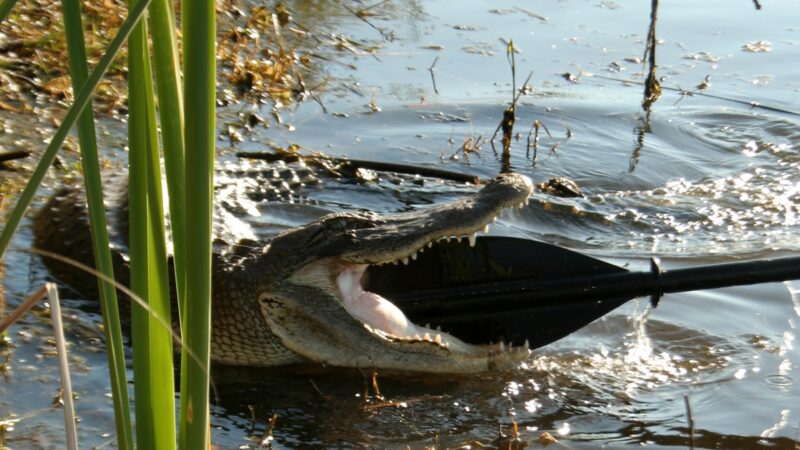A Guide to New Jersey’s Culture and Quirks, According to a Jersey Girl
Ah, New Jersey; home to pork roll, egg, and cheese on an everything bagel. It’s a place full of wonderful state parks, an official demon, and laws that prevent you from pumping your own gas. It’s a unique place full of historic landmarks, rich landscapes, and strange culture.
If you plan on visiting Bruce Springsteen’s home state (or if you’re a 2000s Disney Kid, the Jonas Brothers) you’ll want to be aware of some of the important quirks that come along with New Jersey. And as Outdoors.com’s resident Jersey Girl, I’m here to tell you everything you need to know.
Why is it called the Garden State? We don’t know.
If you didn’t know New Jersey’s nickname was “The Garden State,” don’t feel too bad. According to a 2008 study, an estimated half of New Jersians didn’t know it either.
According to the state’s website, a politician by the name of Abraham Browning coined the name during a speech at the Philadelphia Centennial exhibition in 1876. Although the historical record is up for debate, he described New Jersey as “an immense barrel, filled with good things to eat and open at both ends” and the name has stuck ever since.
The description derives from the fact that more than two-thirds of the state was once farmland. Then, in 1954, state lawmakers made “The Garden State” the official nickname for New Jersey when they decided to stamp it on state license plates. Today, with nearly 9,000 farms, New Jersey’s third largest industry is food and agriculture.
Filler’ $20 regular

In case you didn’t know, New Jersey is one of two states in the country where it’s illegal to pump your own gas. However, the other state, Oregon, switched to a hybrid model in its less populous areas.
While at one point in American history, full-service stations were the norm, they’ve dramatically decreased since the 1970s. Still, it’s been New Jersey law since 1949 because of the “hazards” associated with pumping your own gas. Plus, it’s a long-standing sentiment that Jersey Girls don’t pump their own gas.
Whether you’re passing through the state or you’re heading to a soon-to-be favorite campsite, you’ll want to keep this strange law in mind. This rule also applies to filling up reusable gas tanks, so if you’re looking to bring a little extra gasoline to camp with you, you’ll have to ask for that too.
Long story short, do not get out of your car at the gas station. Yes, it can be slower, but if you’re visiting during the winter, you’ll be thankful.
Land of the Lenapehoking
Before becoming a state, the land belonged to the Lenapehoking (Lenni Lenape tribe). The Lenape people spread from southeastern Delaware to eastern Pennsylvania up to Southern New York State. Members of the Lenapehoking have shared their land with European settlers, but never surrendered to them. The tribes throughout New Jersey have often lived together, with family-clan style leadership.
The great Central Jersey debate (yes, it’s real)
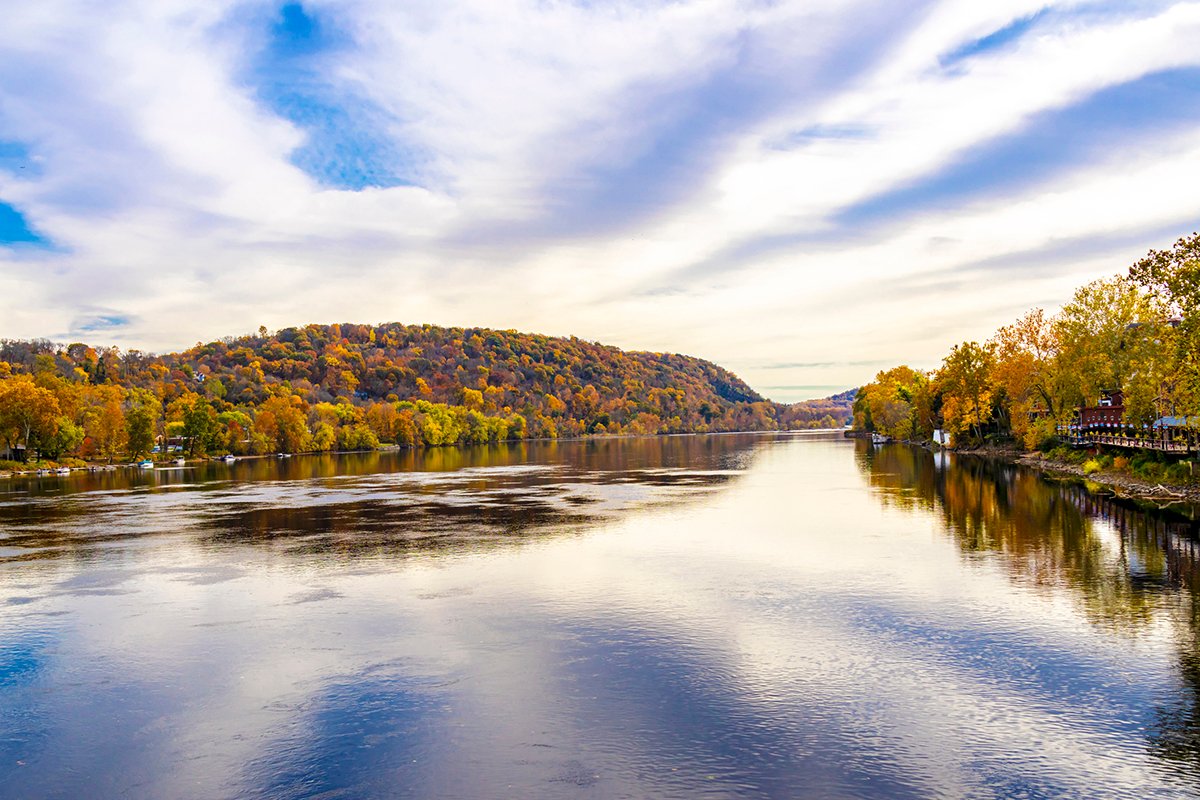
If you ask anyone from New Jersey if Central Jersey exists, they’ll most likely have a very intense reaction to the question. Even though Gov. Phil Murphy declared that Central Jersey consists of Hunterdon, Mercer, Middlesex, Monmouth, Somerset, Ocean, and Union counties, it’s still a hotly debated topic throughout the state.
Many argue over the exact areas in which Central Jersey ends, with many excluding Ocean and Union counties. However, as a Central Jersian, I always describe it as the place where QuickChek and Wawa meet. As much as I am a Central Jersey supremacist, even I can admit that there are some pretty cool things to do in each part of the state.
North Jersey
New Jersey truly has a lot to offer, some of which you may not even realize. For example, did you know that The Statue of Liberty is technically in New Jersey? That’s right. I’m sure some New Yorkers are not going to like that statement, but it’s true. It technically sits in northern New Jersey waters. North Jersey is also home to Met Life Stadium, so both the Jets and the Giants play in the Garden State.
Central Jersey
The area of New Jersey that I call home is definitely the best (but of course, I may be biased). We get a little bit of everything including awesome county parks and access to “the shore.” But it’s also a great place to access the Delaware River for a little tubing adventure. Central Jersey also has a number of great food truck festivals that are truly something to behold. We’re also home to the only Ivy League universities in the state: Princeton and Rutgers-New Brunswick.
South Jersey
South Jersey is home to some pretty famous residents of the state including Lucy the Elephant and The Jersey Devil, but these two have rather impressive stories, so they each have their own sections. But one of the most notable parts of South Jersey is probably Cape May. With a number of beaches and walking trails, this historic part of New Jersey is definitely a place you’ll want to visit even if you’re just passing through. It is also home to the historic Cape May Lighthouse.
High Point State Park is… not that high
There are a number of beautiful state parks to visit in New Jersey, whether you want to go to the beach or you’re looking to get out into the mountains. If you’re looking for the opportunity to get in some hiking and also take a quick dip after all those miles, a great place to visit is High Point State Park in Wantage, New Jersey. This year, High Point celebrates its 100th birthday, so you’ll definitely want to make sure you pop in and explore the 16,000 acres of protected land that can be found in Northern New Jersey.
As the name suggests, the park is home to the highest point in New Jersey, at a whopping 1,803 feet above sea level. Okay, so we’re messing with you, yes, New Jersey is a pretty flat state overall, but when you get to the summit of High Point you’ll be able to look over the horizon and see New York and Pennsylvania in the distance, which is actually really cool to take in, especially on a clear day.
Home to Meryl Streep, Danny DeVito, Whitney Houston, and the JoBros
A lot of people have a lot to say about New Jersey and not all of it is positive. So how can you explain all of the phenomenal talent that comes out of the state? Not only do we have a lot of it, but their legacy of fame goes back over 100 years.
Frank Sinatra was born in Hoboken, New Jersey in 1915 and the city takes this very seriously. With murals and statues to honor Ol’ Blue Eyes, there are plenty of opportunities to take on a walking tour and get an idea of what this legend’s life was like all those years ago.
Of course, Frank Sinatra is not the only famous resident. Grover Cleveland — the 22nd president of the United States — was born in Cleveland, New Jersey; Susan Sarandon grew up in Edison, as did pop singer Halsey; Danny DeVito was born in Neptune Township; Shaquille O’Neil lived in Newark; and that doesn’t even include Bruce Springsteen, Jon Bon Jovi, Paul Rudd, and Dionne Warwick.
Fun Fact, did you know that two of New Jersey’s own have been on Running Wild With Bear Grylls? That’s right, in Season Three (which aired from 2016-2017) both Shaquille O’Neil and Nick Jonas were on episodes of Running Wild. Grylls and Jonas went to Sierra Nevada where they repelled down the side of a snowy mountain and ate a frozen bird. When Shaq takes his turn, they head to the Adirondacks and he has to trust Bear to help him rappel down a cliff.
Home to American History
When people think about early United States history, they often think of Philadelphia or New York City (thanks, Hamilton) but there have been a number of important historical events that have taken place in New Jersey.
Princeton Battlefield, Monmouth Battlefield, and Rockingham Historic Site are all important locations from the Revolutionary War. Monmouth Battlefield was the site of one of the longest battles in the Revolutionary War, beginning on June 28, 1778.
Morristown, New Jersey was the location of Washington’s Headquarters during the Revolutionary War and became a location for many rich New Yorkers to build summer homes and mansions, many of which are still standing today, making it a great place if you’re looking for a wide variety of architecture. And while you’re in Morristown, make sure to visit the Frelinghuysen Arboretum, a historical working farm that was home to the Frelinghuysen family in the late 1800s.
Six landscapes
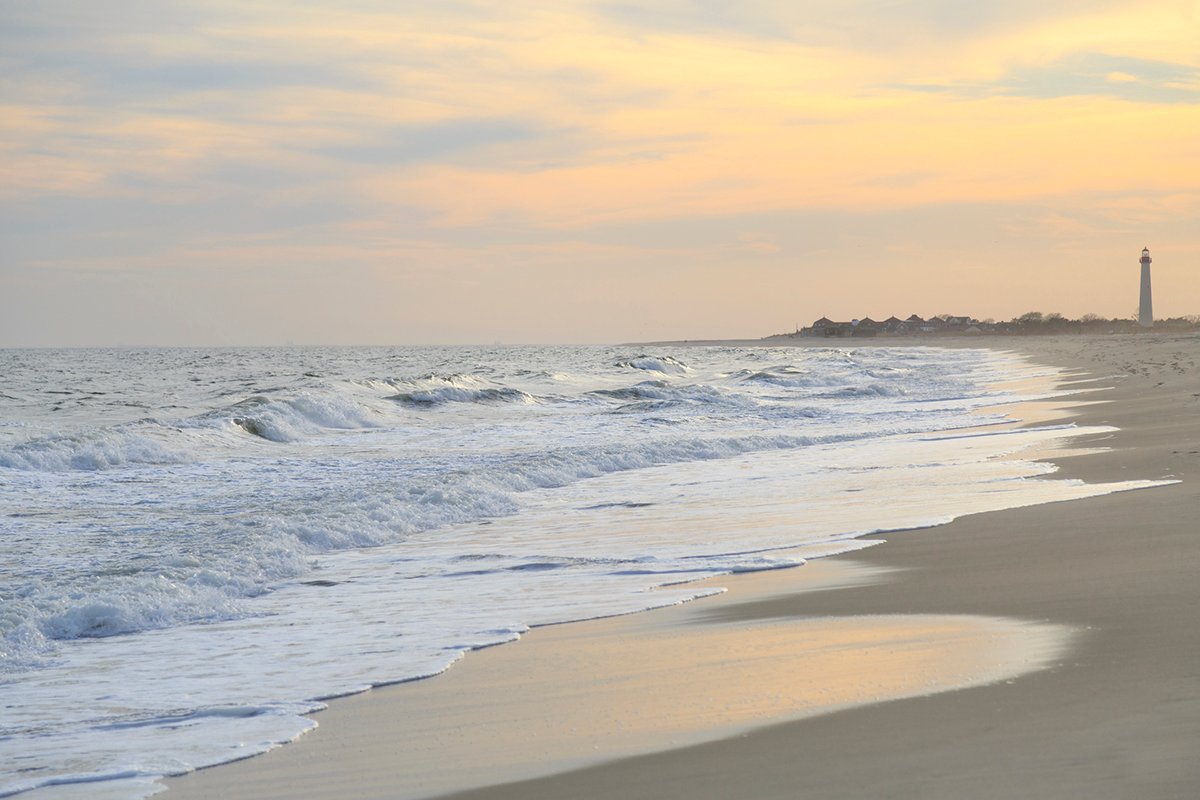
According to the New Jersey Fish & Wildlife Department, there are five physiographic regions and six landscape regions within New Jersey. Leading to a vast amount of wildlife roaming through the state.
The Atlantic Coast Landscape is home to Ospreys, northern harriers, and northern diamondback terrapins, as well as a number of migratory birds and endangered beach-nesting birds.
The Delaware Bay Landscape houses creatures like Cope’s gray tree frog, bald eagles, and eastern tiger salamanders. This southern region of New Jersey is also called home by over 30 endangered and threatened species.
The Piedmont Plains are known for being where the majority of farmland is located as well as being home to a number of raptors and the barred owl.
The Pinelands have diverse reptile species, as well as amphibians and invertebrates. As an extensive grouping of wetlands, there are also a number of insects that are native to the Pineland region of the state as well as neotropical birds.
The Skyland Landscape is known for the many birds and raptors that live in the area. Home to the red-shouldered hawk and the golden-winged warbler. As well as being the place where the timber rattlesnake and long-tailed salamander live.
As the most southern area of the state, the Marine Landscape is home to a number of species of shellfish such as the horseshoe crab. It is also an area known for its whales and sea turtles as well as being a migration territory for bottlenose dolphins.
Visit the Jersey Devil
Located in the heart of the Pine Barrens, Wharton State Forest is the largest forest in New Jersey, covering about 110,000 acres across three counties. Wharton State Forest produced iron products during the Revolutionary War and is known for being an industrial center for glass-making from 1776 until 1867. It is now home to a number of hiking and cycling trails as well as opportunities to canoe and kayak.
Oh, and did we mention that it’s located in the Pinelands (also known as the Pine Barrens)? If you’re interested in searching for monsters, Wharton State Forest offers a great opportunity for you to get out there and try and catch a glimpse of New Jersey’s only state Demon.
We love Lucy
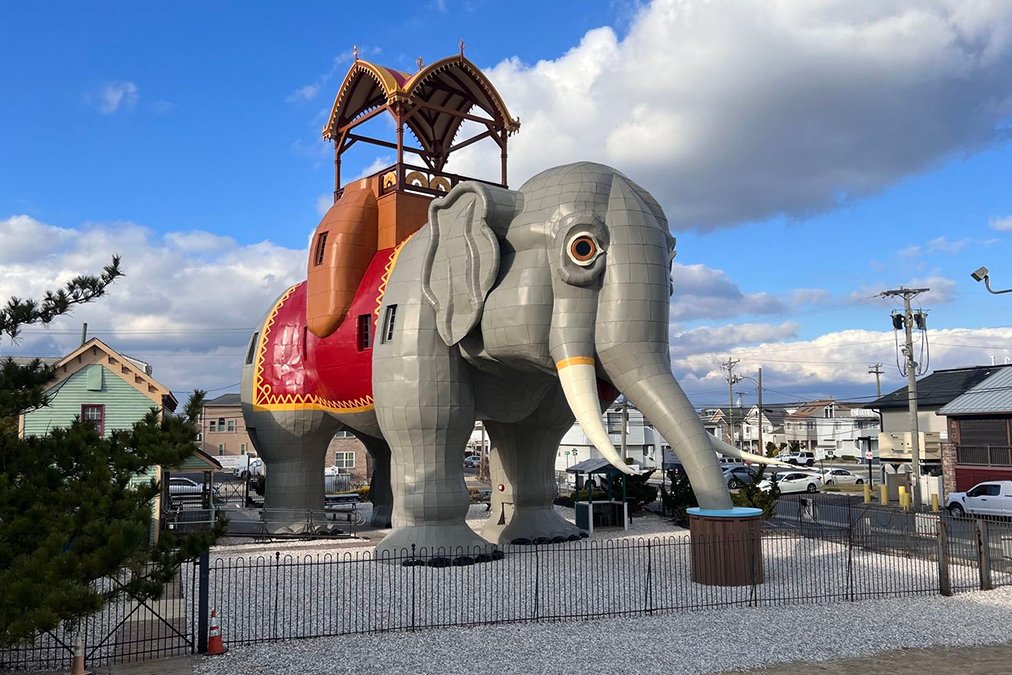
At almost 142 years old, the six-story elephant, lovingly known as Lucy, is a New Jersey landmark that you wouldn’t want to miss. Located in Josephine Harron Park in Margate, New Jersey, Lucy the Elephant has become an icon of the Jersey shore and has been added to the National Park’s Registry of Historical Landmarks.
Originally built as the Elephant Bazaar in 1881, Lucy has lived a fascinating life and has been many things during the almost century-and-a-half. Having also been a tavern and a personal residence, Lucy the Elephant was in desperate need of restoration after 100 years of wear and tear. After 12 years of being closed to the public, Lucy reopened in 1974, and restoration was completed in 2000.
You can even book an overnight stay in Lucy with a group if you so choose. As they say on their website, “Think of it like camping… inside an elephant!”
So, yes, New Jersey is definitely a little weird. We have some weird rules, weird stories, and weird landmarks, but it wouldn’t be the phenomenal and insane place it is today without its peculiar connection to history, diverse wildlife, and of course swath of celebrities.
If you’ve enjoyed this article about New Jersey, check out our other travel guides.


